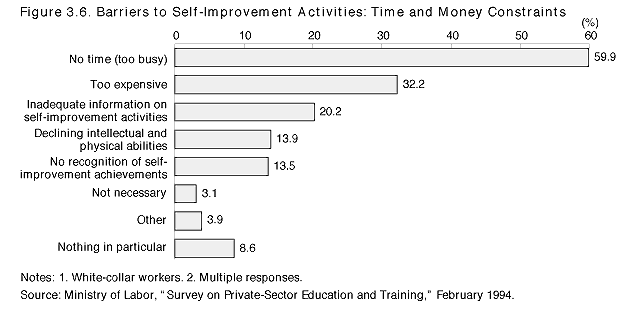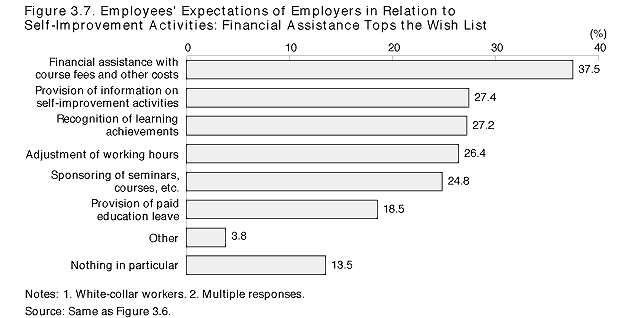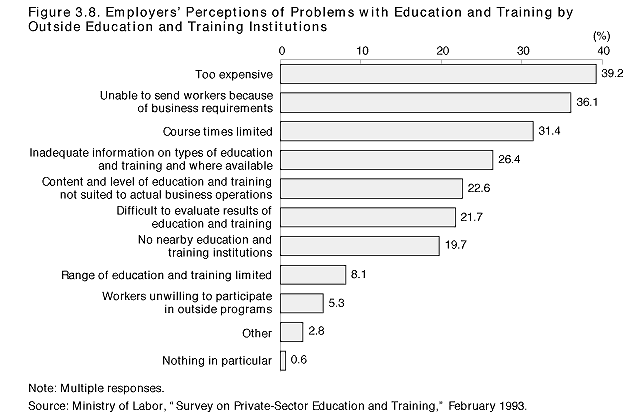| Home > Policy > White Paper, Notice, Announcement > White Paper > JAPANESE GOVERNMENT POLICIES IN EDUCATION, SCIENCE, SPORTS AND CULTURE 1996 > Priorities and Prospects for a Lifelong Learning Society Chapter 3 Section 2 5 | ||
The Ministry of Labor's "Survey on Private-Sector Education and Training" yields similar findings in regard to the problems encountered by people wishing to engage in structured, ongoing learning at advanced levels. When participants in the February 1994 survey were asked to cite barriers to self-improvement activities, 59.9% stated they had "no time" and 32.2% that such activities were "too expensive" ( Figure 3.6 ). Employees' main expectation of employers was "financial assistance with course fees and other costs" (37.5%) ( Figure 3.7 ). In the February 1993 survey the most frequent response (39.2%) when employers were asked to cite problems with education and training by outside education and training agencies was "too expensive" ( Figure 3.8 ).
To promote adult learning activities it is necessary not only to improve the acceptance systems of institutions of higher education but also to deal with the issues discussed above. In view of the fact that learning activities are commonly motivated by work-related factors, the provision of support to learners, either by employers or through government job skill development systems, is essential.
The Ministry of Labor has recognized this need by including a policy calling for the promotion of skill development in the Sixth Basic Plan for Human Resources Development, under the heading "Utilizing the Individuality of Workers in Job Skill Development Activities." The plan specifies a number of concrete measures for this purpose. First, there will be strong encouragement of the introduction of paid education leave systems by corporations, and companies will be encouraged to establish systems, such as long-term leave, that enable employees to take leave for self-motivated job skill development activities. Second, efforts will be made to foster appropriate social trends and educate employers and other relevant groups so that working hours can be adjusted and facilities and systems for job skill development can be improved. Third, studies will be carried out concerning measures to provide direct support to a wide spectrum of individual workers in order to promote job skill development activities based on individual initiatives. Measures to improve support, including direct support to individuals, for job skill development activities based on individual initiatives are also seen as important from the perspective of supporting adult learning activities as a whole.



| Back to Top | MEXT HOME |